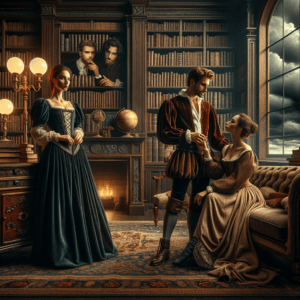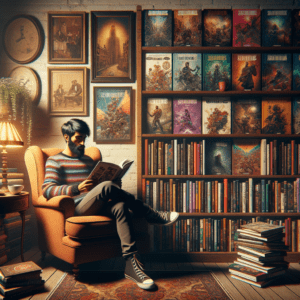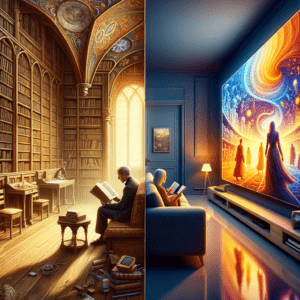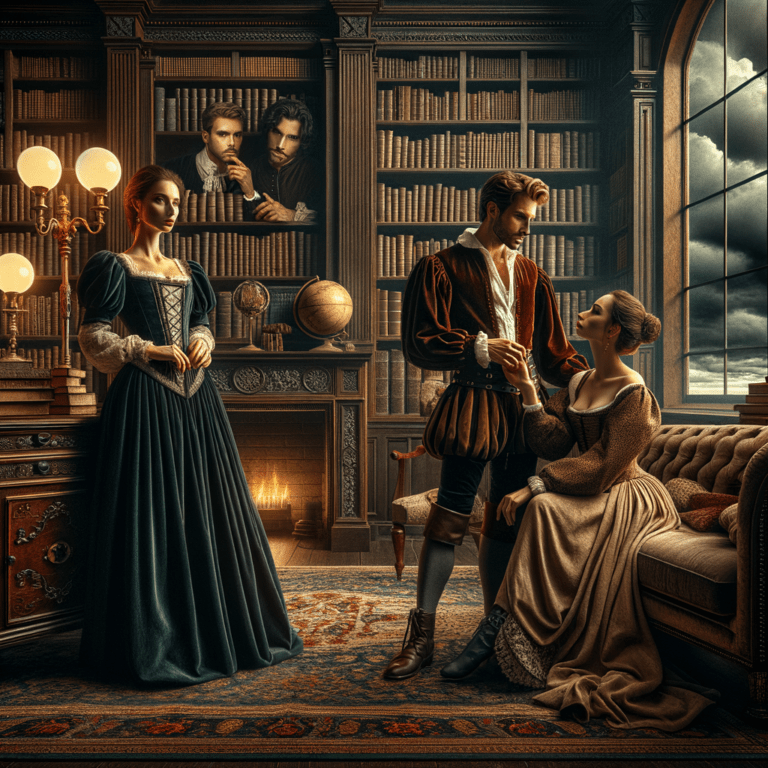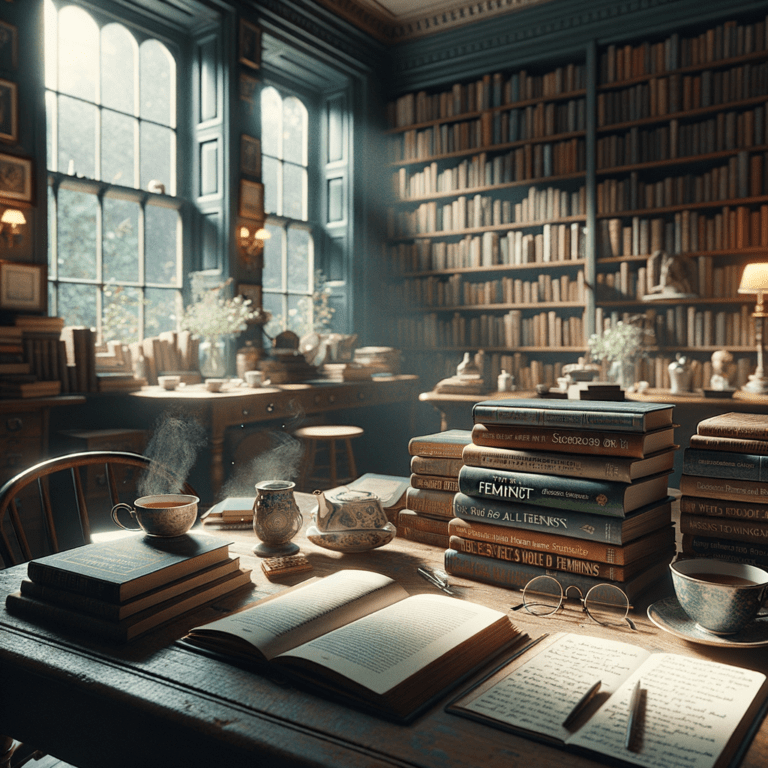Ah, literature. Where do I even start? There’s just something about it that’s like a good, hearty bowl of soup—comforting, rich, and somehow, transcendent. You know, stories, those collections of words on a page, really have this unique ability to reach across time and space, connecting me with people from long before my time. They carry with them tiny snapshots of the era and culture they sprang from. It’s like a magical time capsule wrapped in a narrative bow, waiting for me to uncover its secrets.
I love diving into an old, worn-out book where the pages are a bit yellow and the ink’s faded. It’s like stepping back in time. One moment, I’m in the here and now, and the next, I’m walking the foggy streets of Victorian London or standing in some grand court of ancient China. It’s this brilliant journey without leaving my comfy reading nook. And these stories? They’re a rich tap tapestry of cultural life—so much more vivid than those dry, old history books we all struggled with in school. They’re like whispered stories from ancestors, whispering tales of how things used to be, both in the mundane and in great historical leaps.
Storytelling as Cultural Glue
Boy, do I remember those childhood days, sitting there with eyes wide as my grandparents told their tales. They shared stories that were bigger than life, peppered with traditions and little nuggets of wisdom that gave us a sneak peek into our family’s soul. It’s amazing how these tales contained not just events, but our identity, our culture all wrapped up in morals and values. Similarly, literature is that kind of magical glue that binds cultures and generations together. It’s like a guardian that keeps cultural heritage alive, saving it from being swept away by the whirlwind of modern life.
Think of all those ancient epics, like Homer’s “Iliad” or India’s “Mahabharata.” Sure, they sound like epic tales of daring heroes and divine intervention, but peel back that layer and you’re holding a brochure to the cultural nuances of their time. Those stories? They aren’t just for kicks. They’re a transport to the soul of their civilization, laying out fears, hopes, and beliefs like a soul-baring diary.
Language: The Heartbeat of Culture
Ah, language. If you ask me, it’s the heartbeat that makes culture come alive in stories. And when you think about it, isn’t it kind of puzzling how things get lost in translation? I guess language lovingly cradles culture—it has quirks, jokes, and idioms that give it unique life. Every time I lose myself in a story penned in medieval French or classical Arabic, I feel like I’m wearing a archaeologist’s hat, brushing away the layers to find the heartbeat of that culture. When those characters speak, each word is like a breadcrumb leading back to societal norms and timeless proverbs.
Literature as a Time Machine
If literature were a gadget, it would totally be the world’s most reliable time machine, right? It doesn’t just shift you around in time; it freezes cultural snapshots for eternity. I mean, a novel from years ago can make you feel the hustle and bustle of its setting. It’s like an evocative Polaroid of daily life, challenges and triumphs of societies back then. This is such a lifesaver for cultures that have gone through massive changes. Books, like those from the Harlem Renaissance, weren’t just stories; they were cries of identity and spirit, laying bare cultural layers that would be foggy otherwise.
Emotional Resonance and Cultural Connection
And don’t even get me started on the emotional tapestry woven by literature—it just has this powerful way of resonating with my heartstrings. Dive into a story deeply rooted in a distinct culture, and suddenly, you’ve got all these feelings welling up inside. You can’t help but connect with characters living in unfamiliar lands yet battling similar struggles we’re all too familiar with. Suddenly, cultural divides blur and it feels like a hand reached across time and space to hold mine.
Great stories have this delightful trick of touching on universal themes—love, loss, and ambition—that we all recognize while being steeped in their unique cultural brew. I’ve had moments while reading where a story seemed to nestle into my soul, making me appreciate my own background more and doing the favor back for other cultures. It’s like peeking through a lens that shows the depth and nuance of a cultural world you never knew before.
Guardians of Tradition and Innovation
Here’s the thing about literature—it walks a delicate tightrope between tradition and innovation. It’s that wonderful place where stories preserve traditional tales and spin new ones out of old fibers. Authors skillfully dip into historical and cultural inkpots to create new tales, creating a bridge between yesterday and tomorrow. This ensures our cultural heritage gets an update while keeping it grounded in its roots, a necessary evolution so culture isn’t shoved into a dusty corner somewhere.
Personal Reflections on Literary Legacy
On a more personal level, digging into how literature cherishes cultural heritage made me fall more in love with my own cultural roots. Through the ages-old tales of my ancestors, I’ve found deeper connections not just to my story but to the grand, colorful human tapestry of life itself. It’s like finding where my tiny mosaic piece fits in this grand design of history.
Who knows what stories future generations will discover in our tales? What I do know is that the yarn we spin today will be the heirlooms of tomorrow’s world, whispering stories long after we’re gone. And that’s why I take joy and a sense of purpose not just in reading but in creating my own stories. Each story is like a thumping heartbeat, a piece of culture carefully preserved for posterity.
Next time you grab a book off the shelf, remember this: you’re not just opening a storybook, you’re diving into the lively conversation of humanity, preserving those soft whispers from the past and crafting new echoes for those who’ll come next. It’s a wondrous dance with literature—the timeless keeper of our cultural soul.


